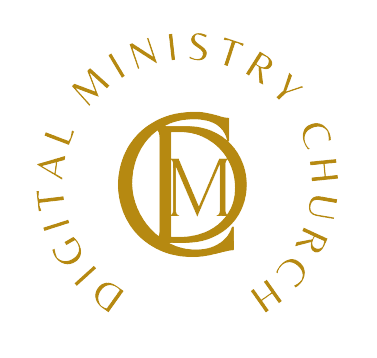Enhancing Community Referral Services: Bridging the Gap with Digital Platforms and Collaborative Partnerships

Posted on 10/14/2023
Community referral services are essential for connecting individuals with the resources and services they need. These services act as a bridge between individuals and the support they require, ensuring that they receive the necessary assistance. In recent years, digital platforms have revolutionized community referral services, making them more accessible, efficient, and effective.
Additionally, ministry and churches actively contribute to community referral services by providing support, resources, and guidance. In this article, we will explore the benefits of community referral services, the role of digital platforms in enhancing these services, and the contributions of ministry and churches in supporting community referral programs.
Benefits of Community Referral Services
Community referral services offer numerous benefits to individuals and communities. One of the primary advantages is improving access to necessary resources. For example, these services can connect individuals with healthcare providers, housing assistance programs, employment opportunities, and social services. By facilitating these connections, community referral services ensure that individuals have access to the support they need to improve their lives.
Another benefit of community referral services is the facilitation of coordinated service delivery. These services connect different organizations and agencies, allowing for a more efficient and effective provision of support. For instance, a community referral program might connect a homeless individual with a shelter, job training program, and mental health services, all through a single referral. This coordinated approach ensures that individuals receive comprehensive support and reduces duplication of services.
In addition to improving access and coordination, community referral services empower individuals. By providing them with knowledge and support, these services enable informed decision-making and address disparities in accessing services. For example, a community referral service may provide information on available scholarships and financial aid programs, empowering individuals to pursue higher education despite financial constraints. This empowerment can significantly impact an individual's life and future opportunities.
A specific example of a successful community referral program is the XYZ Community Health Referral Program. This program has been instrumental in improving the identification and referral of individuals needing healthcare services. By streamlining the referral process and leveraging technology, the XYZ Community Health Referral Program ensures that individuals receive timely treatment and access to the appropriate healthcare resources.
Role of Digital Platforms in Enhancing Community Referral Services
Digital platforms have played a significant role in enhancing community referral services. These platforms provide an accessible and user-friendly way for individuals to connect with the resources they need. Through websites, mobile applications, and online databases, individuals can easily search for and access various services and support.
One example of a digital platform that has revolutionized community referral services is CommunityReferralNetwork.org. This online platform connects individuals with a wide range of services, including healthcare providers, social services, legal aid, and more. By aggregating information and resources in one place, CommunityReferralNetwork.org simplifies the process of finding and accessing services.
Digital platforms also facilitate the efficient and effective delivery of community referral services. They streamline the referral process, reducing paperwork and administrative burdens. For instance, instead of manually faxing referrals between organizations, digital platforms allow for electronic referrals, saving time and ensuring that referrals are received promptly.
Furthermore, digital platforms can provide valuable data and analytics to improve community referral services. By tracking referral patterns, service utilization, and outcomes, organizations can identify areas for improvement and make data-driven decisions. This data can help identify gaps in services, measure the impact of interventions, and optimize resource allocation.
The CommunityReferralNetwork.org digital platform is an excellent example of how technology can enhance community referral services. It has not only improved access to specialty carebut also reduced wait times for surgeries by efficiently connecting patients with the appropriate healthcare providers.
Contributions of Ministry and Churches in Supporting Community Referral Programs
Ministry and churches play a crucial role in supporting community referral programs. These organizations often have significant connections within the community and can provide valuable resources and guidance. They act as a bridge between individuals in need and existing community resources.
One way ministry and churches contribute to community referral services is by offering support and resources directly. For example, a church may have a food pantry that provides meals for individuals and families facing food insecurity. By referring individuals to the church's food pantry, community referral services can ensure that those in need have access to essential resources.
Furthermore, ministry and churches can provide guidance and counseling to individuals seeking support. They often have trained staff and volunteers who can offer emotional and spiritual support to individuals experiencing various challenges. This support can complement the services provided by community referral programs, addressing individuals' holistic needs.
Ministry and churches can also collaborate with community referral programs to expand their reach and impact. By partnering with these programs, ministry and churches can leverage their existing networks and resources to support individuals in need. For example, a ministry might partner with a community referral program to provide job training and placement services to individuals seeking employment.
Overall, ministry and churches actively contribute to community referral services by providing support, resources, and guidance. Their involvement strengthens the network of support available to individuals, ensuring that they receive comprehensive assistance.
In conclusion, community referral services, enhanced by digital platforms and supported by ministry and churches, are vital for connecting individuals with the resources and services they need. These services improve access, coordination, and empowerment while addressing disparities in accessing services. By implementing successful community referral programs, communities can ensure that individuals receive the support and assistance necessary for their well-being.
Contact Information
Free Consultation
Have questions, seeking guidance, or are you interested in learning more? We're here to listen, assist, and support. Reach out to us; your journey toward faith, connection, and growth begins here.
